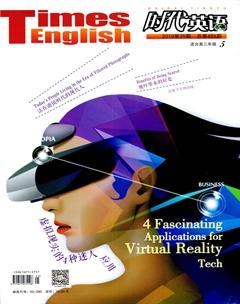活在濾鏡時代的現代人
Before we upload a photo of ourselves to social media, chances are that well use an app to smooth our skin, make our eyes look bigger, and give us longer eyelashes and fuller lips.
With a couple of taps on our mobile phone, were able to get a quick fix and present the “best” version of ourselves to the world.
However, the problem is, when we simply edit our imperfections away, were also changing the way we look at ourselves.
Last year, researchers from the US Boston University School of Medicine published the article Selfies—Living in the Era of Filtered Photographs. The article analyzed photo editing apps bad impacts on peoples self-esteem and their potential to cause appearance anxieties.
The researchers also warned that such apps are blurring the lines between reality and fantasy. “These apps allow one to change his or her appearance in minutes and follow an unrealistic standard of beauty,” the article reads.
In the past, people may have compared their looks to those of celebrities. But for todays young people, beauty standards are most likely set by what they see on social media. “From birth, they are born into an age of social platforms where their feelings of self-worth can be based purely on the number of likes and followers that they have, which is linked to how good they look,” British cosmetic doctor Tijion Esho told The Independent.
This is why many young people suffer an identity crisis when it comes to how they look. “Now youve got this daily comparison of your real self to this intentional or unintentional fake self that you present on social media,” Renee Engeln, a professor of psychology at Northwestern University in the US, told the HuffPost website.
Engeln further pointed out that when people spend too much time making such comparisons; they may become “beauty sick” and find it difficult to accept what they actually look like. “Because between you and the world is a mirror, its a mirror that travels with you everywhere. You cant seem to put it down,” she told The Washington Post.
So when we look in a real mirror, we shouldnt think to ourselves, “Do I look as good as myself in the filtered photos?” Instead, we should think, “I feel good; I have my health.”
在社交媒體上曬照之前,或許我們都會用一款應用來一鍵磨皮,放大雙眼,加長睫毛以及豐滿唇形。
只需在手機上輕點幾下,我們便能輕松地向全世界展現“最好”的自己。
然而,這么做的問題在于,簡單地修圖去掉自身瑕疵的同時,我們也改變了看待自己的方式。
2018年,來自美國波士頓大學醫學院的研究人員發表了一篇題為《自拍——活在濾鏡之下的時代》的文章。該文章分析了美圖應用給人們的自尊所帶來的不良影響,以及其讓人產生外貌焦慮的潛在可能。
去年,研究人員也發出警告稱,這類應用模糊了現實與虛幻的界限。“這些應用幾分鐘內就能改變一個人的外表,追求的是一種不切實際的審美。”該文章寫道。
恩格爾恩進一步指出,當人們花費過多時間進行此類比較時,他們或許便患上了“美容病”,甚至很難接受自己真實的外貌。“因為立在你與世界之間的是一面鏡子,它如影隨形,無處不在,你根本無法放下它。”她在接受《華盛頓郵報》采訪時說道。
所以當我們在照一面真實的鏡子時,我們不能問自己:“我看起來和美顏照片里一樣好看嗎?”相反地,我們應該這么想:“我覺得很好,我有一種健康美。”
在過去,人們或許會將自己的相貌與名人進行比較。但對如今的年輕人而言,審美標準大多數都來自在社交媒體上看到的形象。“從出生的那一刻起,他們便在社交媒體的時代中成長。他們對于自我價值的認同或許僅僅是基于點贊數和粉絲量,而這又和外貌息息相關。”英國美容醫師提吉歐·艾修在接受《獨立報》采訪時說道。
這便是許多年輕人在外貌上產生身份認同危機的原因。“如今你每天都會將真實的自我,與在社交媒體上有意無意地展示出的虛假形象進行比較。”美國西北大學心理學教授蕾妮·恩格爾恩在接受《赫芬頓郵報》網站采訪時表示。
Word Study
blur /bl??/ v. 使變模糊
The street lights were blurred by the fog.
intentional /?n't?n??n?l/ adj. 故意的
Im sorry I left you off the list—it wasnt intentional.

